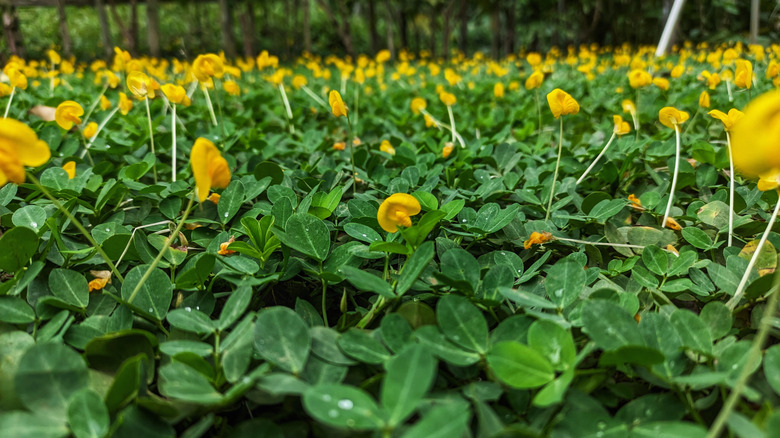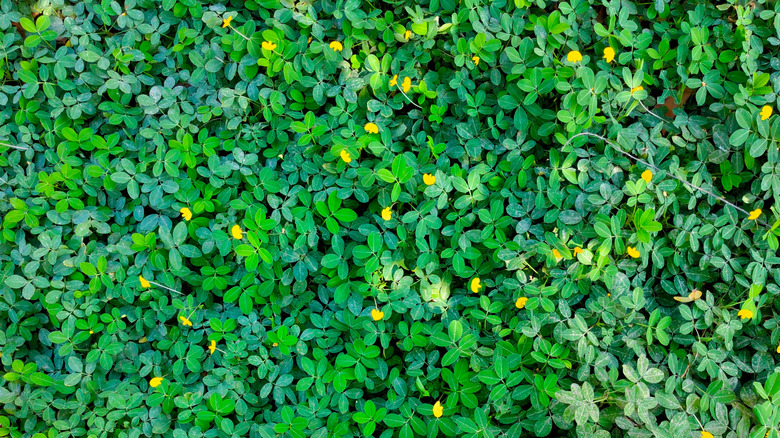Add Some Beautiful Color To Your Lawn With This Attractive Ground Cover
Nowadays, many people are looking for no-mow alternatives to gardens and grass lawns while others simply want to find ground cover plants that can grow in areas where regular turf grass species tend to struggle. While there are a few well-known ground cover options for shady and wet areas of a yard, like moss and creeping thyme, it can be a little harder to find ground cover alternatives for sandy soil that gets full sun. This is where a plant called perennial peanut comes in.
Also known as creeping forage peanut or ornamental peanut grass, perennial peanut is a durable, low-growing ground cover plant that sprouts elegant little yellow flowers in summer (which are actually edible and said to taste like nuts). This plant is perfect for sunny areas in hot and humid climates, like those found in Florida, Georgia, Louisiana, Mississippi, and Alabama. In fact, in these warm and wet Gulf States, this elegant ground cover will grow as a perennial and won't leave your yard after being planted once. Perennial peanut even stays evergreen through winter, adding a lovely pop of color to your yard in all seasons. And the best thing about this plant is that it almost never needs to be mowed and is also pest and drought-resistant. While the perennial peanut can be grown in colder climates (zones 8 and lower), it is usually grown as an annual because it is not frost tolerant.
How to grow and take care of perennial peanut
Whether you choose to plant perennial peanut in only part of your yard or across your entire yard, this attractive ground cover is pretty easy to grow and take care of. Perennial peanut does best in well-draining sandy soil. To get it started, you will want to put the rhizomes in the ground in spring to give the plant enough time and rain to grow a thick cover by summer. Perennial peanut can take around six months to be fully established. If you don't want to wait that long for your ground cover to grow thick and strong, you can also purchase perennial peanut sod from certain lawn care companies and have the plant installed. It is important to note that perennial peanut can be a little too good at growing, and flower beds or yards containing the plant will need to be edged on all sides to help keep it from spreading into unwanted areas.
Although the plant is pretty drought-resistant, during the summer it will still need some supplemental water. Usually around an inch of water each week does the trick (which is about the same amount needed by drought-resistant Bermuda grass). While perennial peanut is a pretty durable plant and can withstand some people walking across it every now and again, it definitely isn't as tough as turf grass. Because of this, if you have kids or pets that use your yard a lot, you may want to choose another ground cover for their play areas. On the positive side, perennial peanut is part of the legume family and is a nitrogen-fixing plant that can help add the essential nutrient back into your soil.

